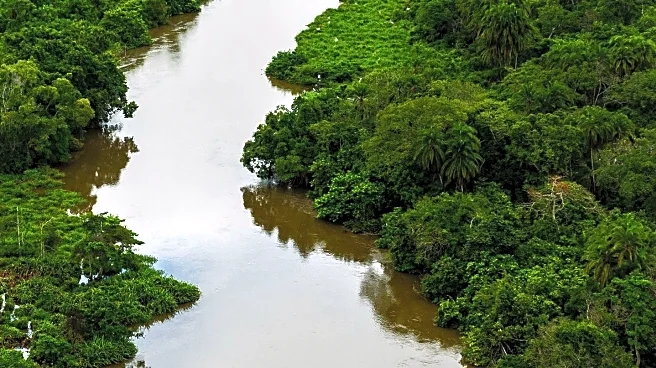What's Happening?
An Ebola outbreak has been declared in the Kasai Province of the Democratic Republic of Congo, with 28 suspected cases and at least 15 deaths reported. The World Health Organization has confirmed the presence of the virus, which has historically caused significant fatalities in the region. The outbreak follows a previous occurrence in 2022 in the Équateur Province. Health officials are concerned about the potential for increased transmission, and a rapid response team has been deployed to manage the situation. The outbreak includes cases among health workers, highlighting the urgency of containment efforts.
Why It's Important?
The Ebola outbreak in Congo poses a serious public health challenge, with potential implications for regional stability and international health security. The virus's high mortality rate and rapid transmission can strain healthcare systems and disrupt communities. The outbreak may necessitate international aid and intervention to prevent further spread and manage the crisis effectively. It also underscores the need for robust healthcare infrastructure and preparedness in regions prone to infectious diseases. The situation could impact global health policies and funding priorities.
What's Next?
Efforts to contain the outbreak will likely involve increased surveillance, vaccination campaigns, and international collaboration. The World Health Organization and other health agencies may provide support to Congolese authorities in managing the crisis. The outbreak's progression will be closely monitored, with potential implications for travel and trade in the region. Long-term strategies may focus on strengthening healthcare systems and improving disease prevention measures to mitigate future outbreaks.










